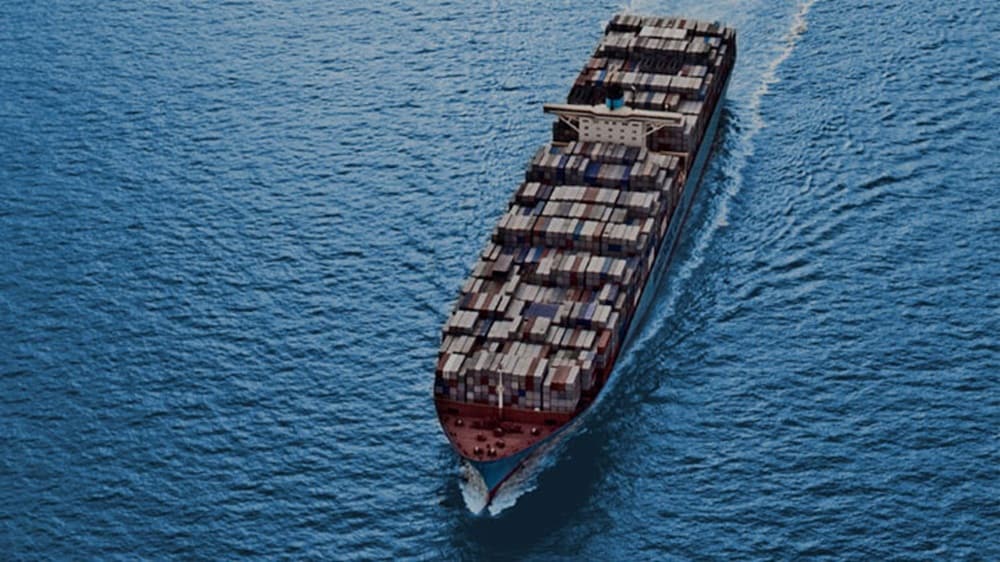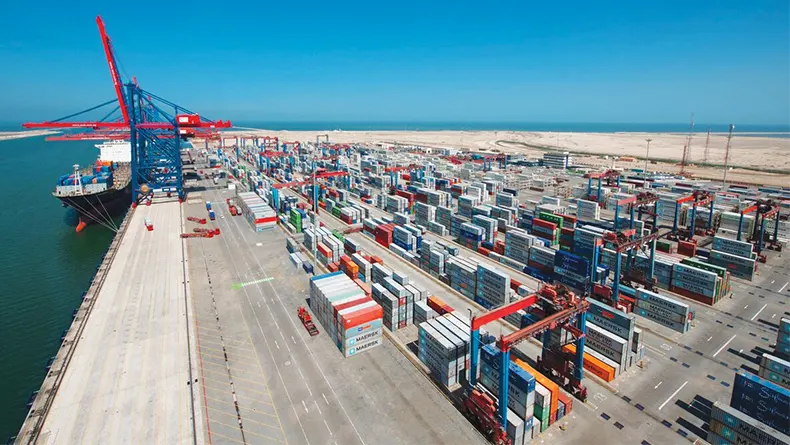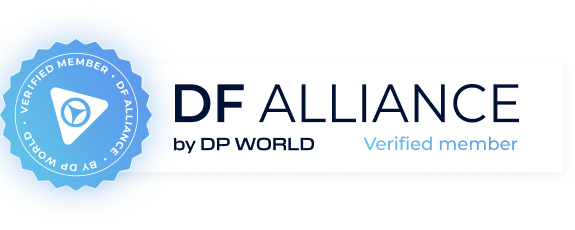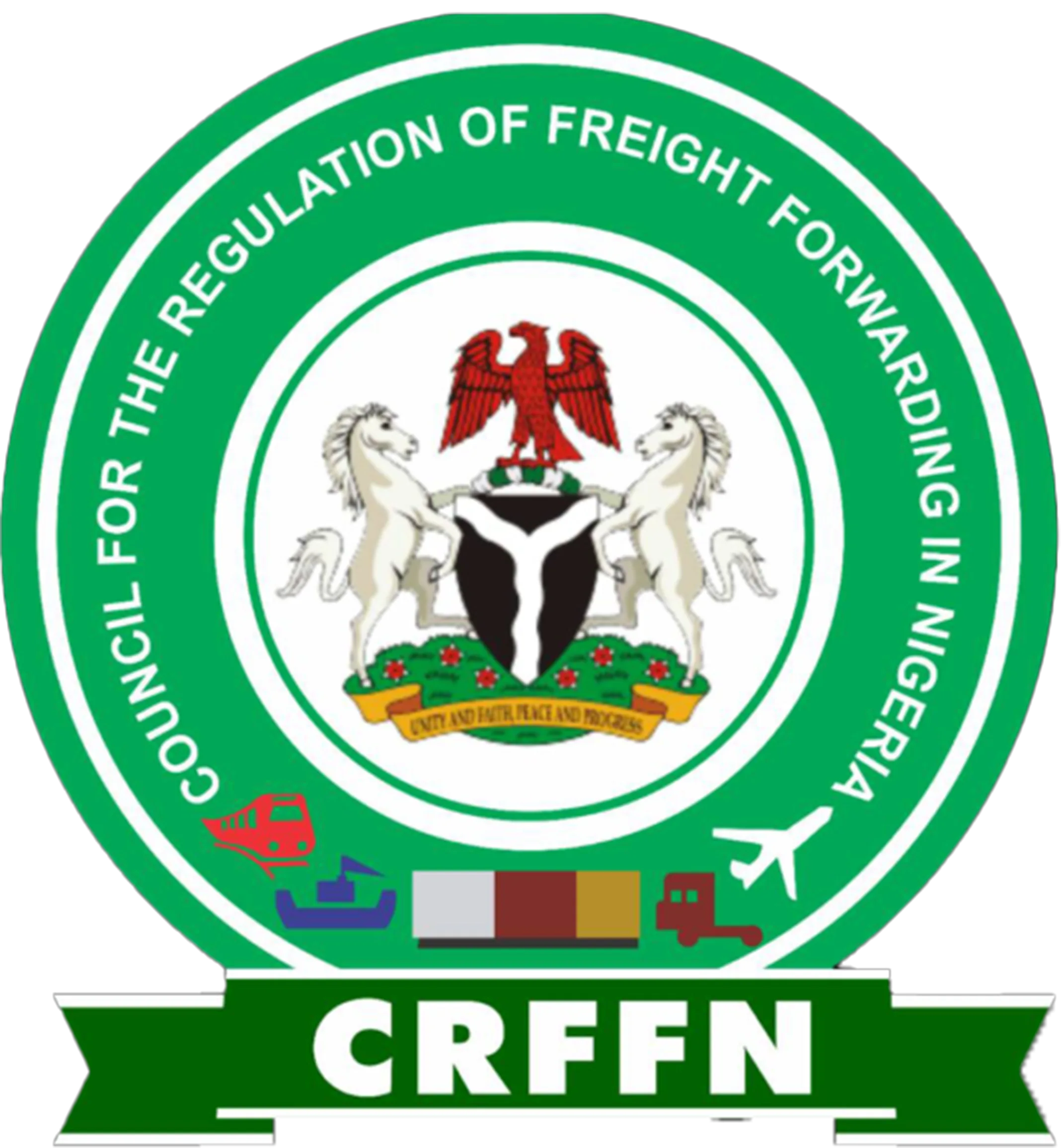Connecting Niger across Africa and beyond
Successfully navigating Niger’s distinct trade environment demands both local expertise and a robust logistics network. Limark, a proven leader in African logistics, offers tailored solutions to simplify cross-border trade in the region. Our extensive network and end-to-end solutions connect Niger to key markets globally.
Whether you’re a local producer exporting Niger’s rich resources or a global company importing essential goods, Limark’s tailored solutions streamline your supply chain. Our expert team handles everything from customs clearance to warehousing, ensuring efficient and cost-effective movement of your cargo.

Import regulations
Importing goods to Niger requires navigating specific procedures and documentation. Here’s a breakdown of the essential requirements:
Product categories requiring import licenses/permits
Food and agricultural products
Cereals (Rice, Wheat, Maize): Due to their strategic importance for food security, these commodities require import licenses from the Ministry of Agriculture and Livestock. Importers must demonstrate a valid business license, provide details on the quantity, origin, and intended use of the products, and meet specific quality standards.
Sugar: Import licenses are necessary due to the strategic importance of this commodity and to protect domestic production. The Ministry of Trade and Industry issues licenses based on market demand and production forecasts.
Vegetable Oils: Licenses are required to control the quality and origin of imported oils and protect local producers. Import quotas may apply depending on the type of oil and market conditions.
Meat and Poultry: Detailed health certificates issued by the competent authority in the country of origin are mandatory. These certificates must attest to the animal’s health status and compliance with Niger’s sanitary standards. Additional permits from the Ministry of Agriculture may be required for specific meat products.
Dairy products: Import licenses and health certificates are required to ensure the safety and quality of imported dairy products. Specific labeling requirements apply.
Pharmaceuticals and Medical Devices
Medicines: Marketing authorization (AMM) from the Ministry of Public Health is mandatory. The application process involves submitting a detailed dossier with information on the product’s composition, efficacy, safety, and manufacturing processes.
Medical devices: Registration with the Ministry of Public Health is required before importation. The registration process involves submitting technical documentation, proof of conformity with international standards, and evidence of quality assurance.
In Vitro Diagnostic Devices (IVDs): Separate registration with the National Laboratory of Public Health (LNSP) is necessary. IVDs must meet specific performance and quality standards.
Chemicals and Hazardous Materials
Industrial Chemicals: Import permits are required from the Ministry of Environment and Sustainable Development, detailing the type and quantity of chemicals being imported. Safety data sheets (SDS) and risk assessments must be submitted.
Pesticides: Special authorization from the Plant Protection Directorate under the Ministry of Agriculture is needed. Detailed information on the product’s composition, use, and potential hazards must be provided.
Hazardous Materials: Importers must comply with international transport regulations (ADR, IMDG, IATA) and obtain relevant permits for the safe transportation and handling of hazardous materials.
Vehicles and spare parts
New vehicles: Import permits are required from the Ministry of Trade and Industry.
Used Vehicles: Strict age restrictions apply (typically less than 5 years old). Pre-shipment inspection and conformity to technical and environmental standards may be required.
Spare parts: Import permits may be required depending on the type and value of the spare parts.
Prohibited and Restricted Imports
Prohibited
- Narcotic drugs and psychotropic substances
- Pornographic and obscene materials
- Counterfeit and pirated goods
- Hazardous waste (Basel Convention)
- Ozone-depleting substances (Montreal Protocol)
- Asbestos
- Explosives (except for authorized industrial or mining use with a permit from the Ministry of Interior)
- Firearms and ammunition (except with authorization from the Ministry of Defense)
- Used tires
Restricted
- Live animals and animal products (require health certificates)
- Plants and plant products (require phytosanitary certificates)
- Used clothing and footwear
- Alcohol and tobacco products (subject to high taxes and require specific permits)
- Certain types of plastic bags
- Gambling equipment
Relevant agencies
- Directorate General of Customs (DGD)
- Ministry of Finance (Ministère des Finances)
- Ministry of Agriculture and Livestock (Ministère de l’Agriculture et de l’Elevage)
- Ministry of Public Health (Ministère de la Santé Publique)
- Ministry of Environment and Sustainable Development (Ministère de l’Environnement et du Développement Durable)
- Ministry of Trade and Industry (Ministère du Commerce et de l’Industrie)
- Ministry of Transport (Ministère des Transports)
- Regulatory Authority for Posts and Telecommunications (ARPT)
- Plant Protection Directorate
- National Laboratory of Public Health (LNSP)
Free Time
- Typically, 3 to 7 days after the container is discharged, but this can vary depending on the shipping line and port.
- Check the specific free time terms in your Bill of Lading or contract.
Demurrage Charges
- Calculated per container, per day.
- Rates vary depending on the shipping line, container size, and time elapsed.
- Escalation clauses may apply after a certain period.
Detention Charges
- Separate from demurrage charges
- Applied when the container is held beyond the agreed-upon time for return to the shipping line after being picked up from the port
- Rates vary depending on the shipping line and container size
Storage Limitations
- Ports have limited container storage capacity
- Containers not cleared in time may be moved to off-dock depots at additional cost
Calculation Methods
- Demurrage and detention are usually calculated based on calendar days, not working days
- Saturdays, Sundays, and public holidays are included in the calculation
Required import documentation
Commercial Invoice
- Detailed description of goods (including HS codes, brand, model, etc.)
- Quantity, weight, and unit price of goods
- Total invoice value in USD or XOF
- Incoterms (International Commercial Terms)
- Payment terms (e.g., letter of credit, cash against documents)
- Full details of the consignee and consignor
Packing List
- Detailed list of all items in each package
- Description, quantity, weight, and dimensions of each item
- Package markings and numbers
Bill of Lading/Airway Bill
- Evidence of the contract of carriage between the shipper and carrier
- Details of the shipment, including the consignee, consignor, and port of loading/discharge
- Number and type of packages
- Gross weight and measurement of the cargo
Certificate of Origin
- Issued by the Chamber of Commerce in the exporting country
- Declares the origin of the goods
- Required for preferential tariff treatment under trade agreements (e.g., ECOWAS)
Import Declaration Form (IDF)
- Submitted through the ASYCUDA World system
- Requires detailed information about the shipment, importer, and goods
Import License/Permit (for regulated goods)
- Issued by the relevant government agency
- Mandatory for specific products as mentioned above
Pre-Shipment Inspection Certificate (PSI)
- Required for shipments valued over XOF 1,000,000 (approximately USD 1,700).
- Issued by an authorized inspection company (e.g., Bureau Veritas, SGS)
- Verifies the quality, quantity, and value of the goods before shipment
Other certificates
- Phytosanitary certificate (for plants and plant products)
- Health certificate (for animals and animal products)
- Certificate of analysis (for chemicals and food products)
- CITES permit (for endangered species)
Import licenses and permits
- Identify the Regulating Agency: Determine the specific ministry or agency responsible for your goods based on the product category.
- Gather Required Documents:
- Proforma invoice or commercial contract
- Technical specifications and data sheets (if applicable)
- Certificates of origin, analysis, quality, etc.
- Business registration documents and tax clearance certificates
- Any additional documentation specific to the product or agency
- Submit Application:
- Complete the import permit application form.
- Submit the application along with the required documents and fees to the relevant agency.
- Applications are typically submitted online or in person.
- Processing and Approval:
- The application will be reviewed and processed by the agency.
- The processing time varies depending on the product and agency, but it can take several weeks.
- If approved, the import permit/license will be issued.
- Validity and Renewal:
- The validity period of import permits varies depending on the product and agency.
- Renewal procedures involve submitting a new application with updated documents before the expiry date.
- Costs:
-
- Import permit fees vary depending on the product and agency.
- Additional costs may include inspection fees, testing fees, and translation fees.
Customs clearance Procedures
- Preliminary Import Declaration (PID):
- Importers must submit a PID 7 days before shipping goods valued at or above XOF 1 million (approximately USD 1,700).
- The PID is automatically approved by submitting three copies of the pro forma bill of lading.
- A valid PID is required for the final import declaration.
- Arrival and Unloading:
- Vessel or aircraft arrives at the port or airport.
- Cargo is unloaded and placed in customs control.
- Document Lodgement and Declaration:
- Importer or their agent lodges import documents (commercial invoice, packing list, bill of lading, etc.) with customs.
- Electronic declaration (final IDF) is submitted through the ASYCUDA World system.
- Assessment and Payment:
-
- Customs verifies the submitted documents, ensuring consistency between the final IDF and the initially submitted PID.
- Import duties, taxes, and fees are calculated based on the HS code, value, and origin of the goods, as per the Common External Tariff (CET) of the West African Economic and Monetary Union (WAEMU).
- The importer or their agent pays the assessed amount, which may include:
-
-
- Customs duties (0%-20%)
- Value Added Tax (VAT) (19%)
- Statistical tax (1%)
- Community levy (0.5%)
- Other specific taxes (excise taxes, etc.) based on the product
-
- Verification and Inspection:
-
- Customs authorities conduct document verification, including cross-checking the submitted documents with the physical goods.
- Risk-based inspections may be carried out, which can range from non-intrusive inspections (scanning) to physical examinations of goods.
- Sampling and laboratory testing may be required for specific products (e.g., food, pharmaceuticals, chemicals).
- Release of Goods:
-
- If the shipment complies with all regulations and requirements, and duties/taxes are paid, customs releases the goods for delivery to the importer.
- An electronic release notification is issued through the ASYCUDA World system.
Port/Terminal operations
Seaports
- Port of Cotonou (Benin): The primary port for Niger’s imports, providing efficient container handling and storage facilities. It is well-connected to major shipping routes and offers various logistics services.
- Port of Lomé (Togo): An alternative port for Niger’s imports, with similar services to Cotonou.
Air Cargo Hub
Diori Hamani International Airport (NIAMEY): The main airport for air cargo imports, with dedicated cargo terminals and handling facilities.
Cut-off Dates
Vary depending on the shipping line, destination, and type of cargo. Typically, cut-off times for documentation are a few days before the vessel’s estimated time of arrival (ETA), while the cargo cut-off is closer to the ETA.
It is crucial to confirm the cut-off dates with your shipping agent or freight forwarder to avoid delays and additional costs.
Documentation Requirements at Terminals
Ensure all required documents are in order before the shipment’s arrival to prevent delays or penalties.
Have original copies of the bill of lading, commercial invoice, packing list, import permit, certificate of origin, and other relevant certificates readily available for customs inspection at the port of entry.
Container Pickup/Drop-off and Storage
Coordinate with your shipping agent or freight forwarder for the smooth pickup and drop-off of containers at the port of entry.
Be aware of free time limitations and potential demurrage/detention charges. Consider using off-dock container storage options for longer-term storage needs.
Disclaimer: This information is based on the latest available data and may be subject to change. Always consult with relevant authorities and experts for the most up-to-date and accurate information.
Export regulations
Get a detailed guide that provides an in-depth look into every aspect of the export process to ensure your goods are shipped efficiently and in compliance with all legal standards.
Product categories requiring export licenses/permits
Livestock (Cattle, Sheep, Goats): Niger is a major exporter of livestock, and the export of live animals requires permits from the Ministry of Agriculture and Livestock (Ministère de l’Agriculture et de l’Elevage). These permits ensure that the animals meet health and safety standards and comply with international animal welfare regulations.
Agricultural Products (Onions, Beans, Cowpeas): Exporting agricultural products often requires permits from the Ministry of Agriculture and Livestock to control quality and ensure compliance with international phytosanitary standards.
Minerals (Uranium, Gold, Coal): The export of minerals, particularly uranium, is a significant part of Niger’s economy. Export licenses from the Ministry of Mines and Industrial Development (Ministère des Mines et du Développement Industriel) are mandatory to ensure responsible mining practices and compliance with environmental regulations.
Oil and Petroleum Products: The export of crude oil and petroleum products is subject to licensing and regulation by the Ministry of Petroleum, Energy, and Renewable Energies (Ministère du Pétrole, de l’Energie et des Energies Renouvelables).
Other Regulated Products
Export licenses or permits may also be required for specific products like handicrafts, cultural artifacts, and certain types of wood.
Prohibited or restricted for export
Prohibited
- Narcotic drugs and psychotropic substances
- Pornographic and obscene materials
- Counterfeit and pirated goods
- Hazardous waste (Basel Convention)
- Ozone-depleting substances (Montreal Protocol)
- Weapons and ammunition (except with authorization from the Ministry of Defense)
Restricted
- Endangered species and products (require permits from the Ministry of Environment and Sustainable Development)
- Live animals and animal products without proper health certificates
- Plants and plant products without phytosanitary certificates
- Unprocessed minerals (to encourage local value addition)
- Certain antiquities and cultural artifacts
Required documents
Commercial Invoice: Detailed description of goods (including HS codes), quantity, weight, value, Incoterms, payment terms, and complete details of the consignee and consignor.
Packing List: An itemized list of goods in each package, including description, quantity, weight, dimensions, and package markings.
Bill of Lading/Airway Bill: Evidence of the contract of carriage between the shipper and carrier, with details of the shipment, consignee, consignor, and port of loading/discharge.
Certificate of Origin: Declares the origin of the goods and may be required for preferential tariff treatment under trade agreements (e.g., ECOWAS).
Export Declaration (EXD): Electronic declaration submitted through the Sydonia World system, providing detailed information about the shipment.
Export License/Permit (if applicable): Issued by the relevant government agency.
Export declaration process (through Sydonia World):
- Registration: Exporters register with the Customs Directorate and obtain an exporter code.
- Preparation of Documents: Gather all required documents, ensuring their accuracy and completeness.
- Submission of EXD: Complete and submit the EXD electronically through the Sydonia World system.
- Verification and Approval: Customs verifies the declaration and documents. If compliant, an export authorization is issued.
- Shipment: Proceed with the shipment of goods, providing the export authorization to the carrier.
Required export certificates
- Phytosanitary Certificate (for plants and plant products): Issued by the Plant Protection Directorate.
- Health Certificate (for live animals and animal products): Issued by the Veterinary Services Directorate.
- Certificate of Analysis: This may be required for specific products like minerals to verify their quality and composition.
- CITES Permit (for endangered species): Issued by the Ministry of Environment and Sustainable Development.
Major Ports
Niger is a landlocked country, so exports are typically routed through the ports of Cotonou (Benin) or Lomé (Togo).
Cut-off Times and Procedures
- Vary depending on the shipping line and port of destination.
- Confirm with your shipping agent or freight forwarder well in advance.
- Procedures typically include document submission, customs clearance, security screening, and container loading.
Container Storage and Free Time
- Limited container storage is available at the transit ports in Cotonou and Lomé.
- Free time for storage varies depending on the shipping line and the type of cargo.
- Storage fees apply after the free time expires.
Returning empty containers
- Coordinate with your shipping line or agent to return empty containers to the designated depot.
- Failure to return containers on time may result in detention charges.
Duties, taxes, and fees
Export duties: Generally, Niger does not impose export duties on most goods. However, specific export taxes or royalties may apply to certain products (e.g., minerals).
Other fees: Customs processing fees, document handling charges, terminal handling charges, storage fees (if applicable), and any specific taxes or levies related to the exported product.
Disclaimer: This information is based on the latest available data and may be subject to change. Always consult with relevant authorities and experts for the most up-to-date and accurate information.

Seamless cross-border shipping to and from Niger
Our in-depth knowledge of Niger’s evolving regulatory framework and ever-expanding footprint in the region make us your ideal logistics partner. We understand the intricacies of local customs, tariffs, and documentation, ensuring seamless and compliant cross-border trade. Our proven track record of reliable deliveries and cost-effective solutions enable businesses to thrive in Niger’s dynamic market.
Our team of seasoned supply chain experts, deeply rooted in the local landscape, understands the unique challenges and opportunities of the Nigerien market. We leverage this expertise to deliver tailored solutions that optimize your supply chain, reduce costs, and enhance efficiency. Partner with Limark for a streamlined and stress-free shipping experience in Niger.
Get Expert Guidance
Contact our regional experts
Partner with experienced freight forwarders and customs brokers for seamless shipping to and from Niger. Ensure full documentation compliance with the guidance and logistics services of our team.
Sales enquiries
We’re happy to talk to you about your shipment needs anytime. Please get in touch with us.
Ready to ship?
Get your shipment moving faster. Request a quote today for our end-to-end supply chain services.
Other African Countries










